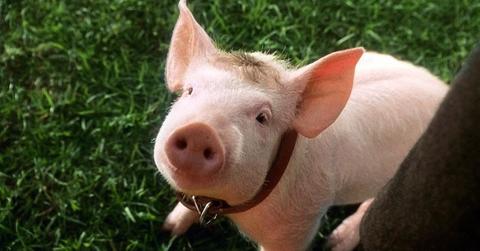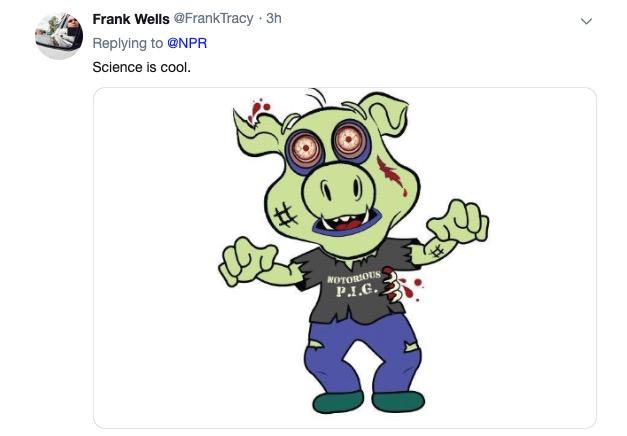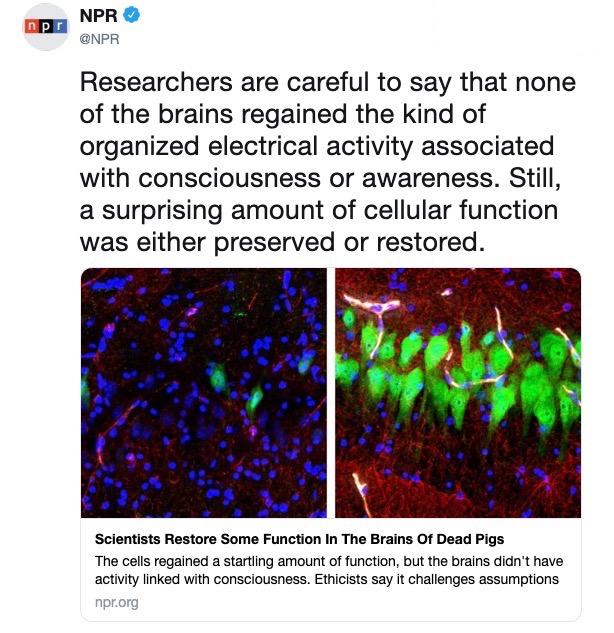Scientists Revived a Pig Brain — Now Everyone's Worried About the Zombie Apocalypse
Updated April 17 2019, 4:59 p.m. ET

Scientists at Yale University revealed in a report in the journal Nature Wednesday that they were able to restore brain circulation and cellular functions in a pig four hours after it died. They were sure to emphasize that this in no way means the dead pigs were up and walking around — "none of the brains regained the kind of organized electrical activity associated with consciousness or awareness," says NPR — the news still made the internet freak out that the zombie apocalypse is imminent.
1.
Scientists often conduct studies that make laypeople wonder whether researchers are actively trying to bring about the end of the world. It happened with the Large Hadron Collider, and every new development in artificial intelligence gets people stressed about the day the real-life Skynet goes online and signals the beginning of the inevitable robot takeover.
2.

The bioethicists involved in the study discussed this and plenty of other ethical implications this study raises regarding organ and live tissue harvests saying in the future "it could be harder for physicians or family members to be convinced that medical intervention is futile," which would reduce the number of available organs for hopeful transplant recipients.
3.
But one ethical question nobody seemed to be asking is, "are we making zombies a thing here?" I'm guessing a scientist would say, "that's because it's a dumb question." I don't know, man, I just write stuff on the internet for a living. But I'm definitely not the only one thinking it.
4.
Predictably, the minute the Twitter-version of this story broke, social media users took this to mean it's only a matter of time before we're grappling with a Walking Dead scenario.
5.

But the study does have interesting implications about the reversibility of brain death in humans in the future, which would be very heartening, even if it would make it harder to find viable organs for patients waiting for new hearts, lungs, and livers.
6.
If you're wondering about the science behind the experiment, the brains were pumped with a "specially formulated chemical cocktail" for six hours. The treatment began four hours after the brains were harvested from a slaughterhouse. Before this treatment, the researchers drained the brain tissue of blood and cooled down the tissue.
7.
They found "tissue and cellular structure is preserved and cell death is reduced" in the treated brains, whereas the control brains exhibited normal signs of deterioration one would expect post mortem. However, this doesn't mean the treated brains were "alive," per se. "This is not a living brain, but it is a cellularly active brain," neuroscientist Nenad Sestan said.
8.

And that breakthrough is super important to people who want to study brain diseases and injuries, because it allows better examination of the 3D organization of the brain.
9.

While it's probably a long way off from this one study, the development also gives hope that cellular activity in "dead" brain tissue could be restored in humans who suffered critical brain injuries or brain death some day.
Science is, indeed, cool. And also, let's be honest, a little scary.

